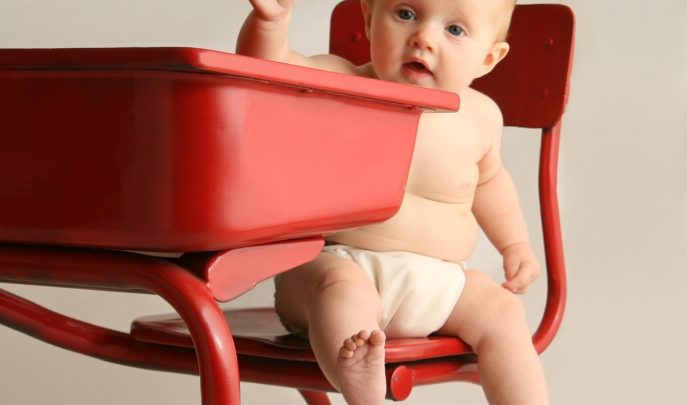Why do we start school at 5?

It᾿s time to stop herding all children into formal education before they᾿re ready, says Sue Palmer…

- by Sue Palmer

Also, the sooner children started school, the sooner they’d finish, releasing more factory fodder at the other end. They didn’t care whether these young children were ready for formal schooling – and any who objected could easily be whipped into line.
Exploitative attitudes
So here we are 150 years later, trapped in a cultural paradigm and still whipping immature learners into line – although nowadays we do it with a testing regime rather than a cane. In Finland, there are no national tests until the end of secondary school.
Extrinsic motivators like exams and targets aren’t necessary, because after several years in a play-based kindergarten, children are generally eager to learn and have had time to develop the social, emotional and linguistic skills they need to settle happily in a classroom.
Thanks to sensitive individual support from kindergarten practitioners, they’ve also acquired the underpinning skills needed for literacy and numeracy at their own pace, so they tend to make rapid progress. Plenty of their kindergarten play is outdoors and active, so Finnish children are physically and mentally healthy too, and well set up for an active lifestyle in the years to come.
Young children in the UK, on the other hand, lead an increasingly sedentary, screen-based existence. According to the British Heart Foundation, only 9% of 4-year-olds presently achieve the recommended daily level of physical activity.
Our cultural attachment to herding this age-group into classrooms and sitting them at desks is unlikely to improve matters. Of course, Finland’s kindergarten system isn’t perfect (well, not quite) and English schools aren’t the most toxic in the world (yet). But all the evidence suggests that – due to the exploitative attitudes of our Victorian forebears – we are at the very least doing our under-7s a disservice and, at worst, damaging them for life. In my new book, Upstart, I’ve assembled evidence-based arguments for changing the ethos of early education in the UK.
If we want children to be bright, balanced, happy and healthy we must stop pushing them into formal schooling before they’re socially and emotionally ready to cope.
Instead, we should introduce a kindergarten stage for 3- to 6-year-olds and provide what children of this age really need – play.
Sue Palmer is a literacy specialist and author of Upstart – The case for raising the school starting age and providing what the under-sevens really need; for more information, visit suepalmer.co.uk.
It’s England, early September. Thousands of 4- and 5-year-old children, wide-eyed and wondering, arrive for their first day at school. There’s plenty of hard work ahead; preparing for a demanding test of phonic knowledge in Year 1 and national tests in Year 2 (including lots of tricky questions about grammar). Meanwhile, in Finland, 4- and 5-year-olds are setting off for kindergarten to play all day. They won’t be starting school till they’re 6 or 7 – our Year 2. So there’s plenty of time to run, jump, climb, explore, experiment, sing songs, paint pictures, make models, listen to stories and find out about maths and the natural world through their own self-directed play. Which children do you think will be happier over the next couple of years? And which will excel in international surveys of educational achievement?
Victorian values
Well, yes – we know the answers. Finland is consistently near the top in UNICEF surveys of childhood wellbeing. England has a lacklustre record on that count, with mental health problems among children and young people spiralling out of control. So why have successive English governments insisted on subjecting very young children to increasing academic pressure when a growing body of research shows that the most significant indicator of long-term educational success is their social and emotional development?
Personally, I think the answer lies deep in our cultural heritage. And it started with a political decision in the 1860s. When governments around the world introduced compulsory primary education, most countries (66%) settled on a school starting age of 6, and a few (22%) chose 7.
Trending
England decided it should be the year children turn 5, and the rest of the UK and other members of the British Empire followed suit. This is the 12% of countries that start school early – all due to fairly typical Victorian values. English politicians wanted the offspring of the poor herded into school as early as possible, so their mothers could work in factories.
Also, the sooner children started school, the sooner they’d finish, releasing more factory fodder at the other end. They didn’t care whether these young children were ready for formal schooling – and any who objected could easily be whipped into line.
Exploitative attitudes
So here we are 150 years later, trapped in a cultural paradigm and still whipping immature learners into line – although nowadays we do it with a testing regime rather than a cane. In Finland, there are no national tests until the end of secondary school.
Extrinsic motivators like exams and targets aren’t necessary, because after several years in a play-based kindergarten, children are generally eager to learn and have had time to develop the social, emotional and linguistic skills they need to settle happily in a classroom.
Thanks to sensitive individual support from kindergarten practitioners, they’ve also acquired the underpinning skills needed for literacy and numeracy at their own pace, so they tend to make rapid progress. Plenty of their kindergarten play is outdoors and active, so Finnish children are physically and mentally healthy too, and well set up for an active lifestyle in the years to come.
Young children in the UK, on the other hand, lead an increasingly sedentary, screen-based existence. According to the British Heart Foundation, only 9% of 4-year-olds presently achieve the recommended daily level of physical activity.
Our cultural attachment to herding this age-group into classrooms and sitting them at desks is unlikely to improve matters. Of course, Finland’s kindergarten system isn’t perfect (well, not quite) and English schools aren’t the most toxic in the world (yet). But all the evidence suggests that – due to the exploitative attitudes of our Victorian forebears – we are at the very least doing our under-7s a disservice and, at worst, damaging them for life. In my new book, Upstart, I’ve assembled evidence-based arguments for changing the ethos of early education in the UK.
If we want children to be bright, balanced, happy and healthy we must stop pushing them into formal schooling before they’re socially and emotionally ready to cope.
Instead, we should introduce a kindergarten stage for 3- to 6-year-olds and provide what children of this age really need – play.
Sue Palmer is a literacy specialist and author of Upstart – The case for raising the school starting age and providing what the under-sevens really need; for more information, visit suepalmer.co.uk.










